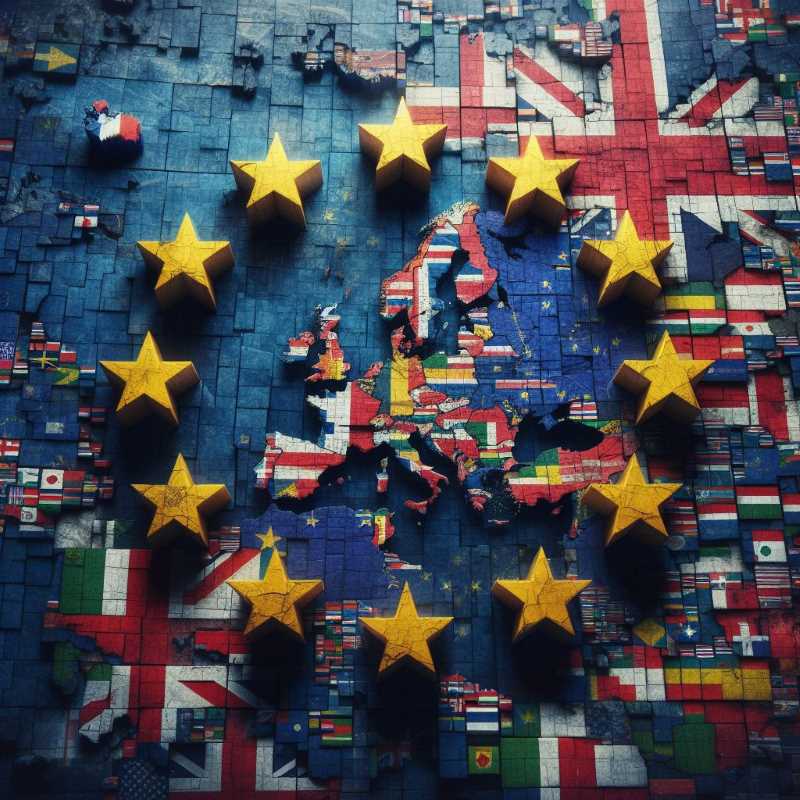Is the EU Losing its Global Influence?
Experts say the EU struggles with fragmented foreign policy and weak leadership. This hinders its ability to be a major global player amidst shifting geopolitics. Internal divisions and lingering nationalism threaten the EU's relevance on the world stage.

The European Union (EU) faces a crisis of leadership and credibility that prevents it from assuming a leading role in the new geopolitical and economic configuration that is being experienced globally, internationalist academics from UNAM and the Universidad Panamericana agreed.
During the conference The place of the European Union in the world in the face of major international conflicts, the head of the European Union Studies Program at the Acatlán Faculty of Higher Studies, Luis Antonio Huacuja Acevedo, commented:
Even though after the fall of the Berlin Wall the idea that the EU should move towards a common foreign, security and defense policy was reinforced, it has been a complicated process and what is observed is that in recent conflicts the position of European countries are divided and, at times, even confronted.
He pointed out that the reality is that foreign policy is not unique, especially when it rests on the interests of each country.
For example, he said, when the US invasion of Iraq, some countries supported the United States on issues such as the independence of Kosovo, on which the European Union generally agrees, but if you ask Spain or Greece the idea is not Of your liking. In other matters, such as Palestine's entry into UNESCO, who would have a valid argument to prevent it? However, some countries voted in favor, others against and some were never decided.
“The reality is that, in most recent conflicts, the European Union votes divided, it is not making a difference and its weight in multilateral organizations is absolutely irrelevant”; It is something that community should not allow itself.
New political game
The internationalist from the Pan American University, Mónica Laborda Sánchez, highlighted that the global order that existed since the Second World War has definitively changed and the world is witnessing another type of balance of checks and balances in this global geostrategic chess.
In this context, she pointed out, the member states of the European Union cannot compete alone, they must do so thinking about all emerging countries.
There is only one way for European nations to participate in this new political game, and that is to unite; This need for greater integration in foreign policy is increased by the great challenges on Europe's borders, such as those now faced in terms of security with the war in Ukraine and the Middle East.
For the EU, it is imperative to achieve foreign policy strategies appropriate to the different scenarios and that involve all members; it should not speak alone.
“The departure of German Chancellor Angela Merkel for 16 years has marked a before and after in European leadership; “In front of the world, there is a lack of leaders in that region and that is definitely a breaking point in the role that the EU is playing at the international level,” she stated.
At the time, the researcher at the Center for European Studies of the Faculty of Political and Social Sciences, Dámaso Morales Ramírez, asserted that the European Union has two faces where, on the one hand, there is the technical, commercial, and cooperation part in the that in some way there can be consensus, negotiation and joint political action.
But, on the other hand, there is the issue of security policy where each of the 27 member countries defends its own interests, in addition to the fact that supranationalism or intergovernmentalism continues to prevail in many of them.
“The problem is that we have a Europe with several very nationalist countries and in some cases, like France, the threat of ultranationalism threatens to re-emerge,” he said.
These governments, he stressed, do not like the proposal of a defense community, a command or a common army, for the sole reason that they would be managed outside their own sovereignty.
Morales Ramírez estimated that the EU must assume its own reconstruction and its leading role on the international stage, through new leadership in multilateral organizations.




